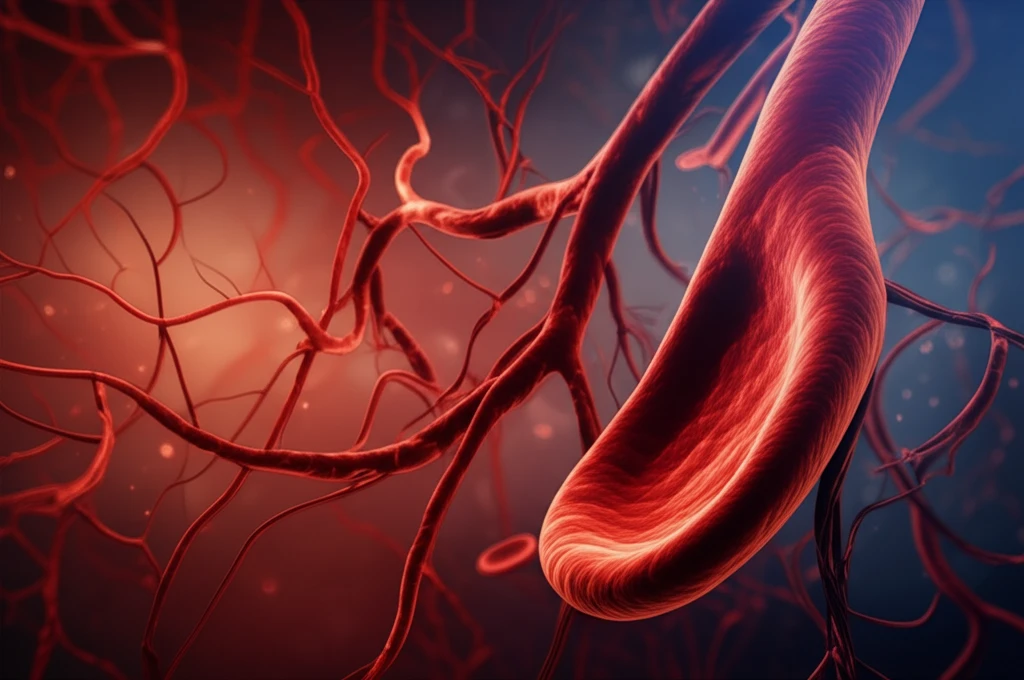
Cracking the MS Code: How Targeting Blood Vessels Could Halt the Disease
"New Research Reveals the Critical Role of Blood Vessel Inflammation in Multiple Sclerosis Progression"
Multiple sclerosis (MS) is a devastating disease of the central nervous system, characterized by the body's immune system mistakenly attacking the protective myelin sheath around nerve fibers. This leads to a cascade of inflammation and damage, resulting in a wide range of neurological symptoms. While there's no cure for MS yet, ongoing research is tirelessly exploring ways to manage the disease, slow its progression, and ultimately, improve the lives of those affected.
Inflammation is a key villain in the MS story. It fuels the demyelination process and directly injures tissue. One of the inflammatory compounds implicated is prostaglandin E2 (PGE2). PGE2 is produced when the body is injured and controls inflammation by acting on certain cells. Recent studies are suggesting blood vessels play a critical role in this process in MS.
Now, exciting new research is shedding light on the intricate connection between blood vessel health and MS. Scientists have zeroed in on how a specific enzyme, microsomal prostaglandin E synthase-1 (mPGES-1), within blood vessels, influences the development of MS. By understanding this relationship, researchers hope to develop targeted therapies that can slow down the disease.
The Blood Vessel Connection: mPGES-1 and MS

The new research, published in the International Journal of Molecular Sciences, investigates how mPGES-1 affects blood vessels and the surrounding tissues in an animal model of MS called experimental autoimmune encephalomyelitis (EAE). Researchers compared mice with normal mPGES-1 levels to mice genetically engineered to lack mPGES-1. The findings revealed striking differences in how the disease progressed in the two groups.
- mPGES-1 promotes blood vessel growth (vascularity) in areas affected by MS.
- mPGES-1 increases the production of the inflammatory protein IL-1ß in blood vessels.
- The effects of mPGES-1 are mediated through specific receptors (EP receptors) on blood vessel cells.
- Blocking mPGES-1 reduces vascularity and inflammation in the animal model of MS.
Hope for New Treatments
This research offers a promising new avenue for MS treatment. By targeting mPGES-1, or the specific EP receptors it influences, researchers hope to develop therapies that can reduce blood vessel inflammation and slow down MS progression. These findings pave the way for innovative strategies to combat this debilitating disease.
